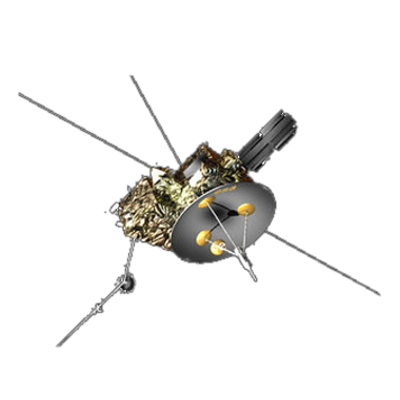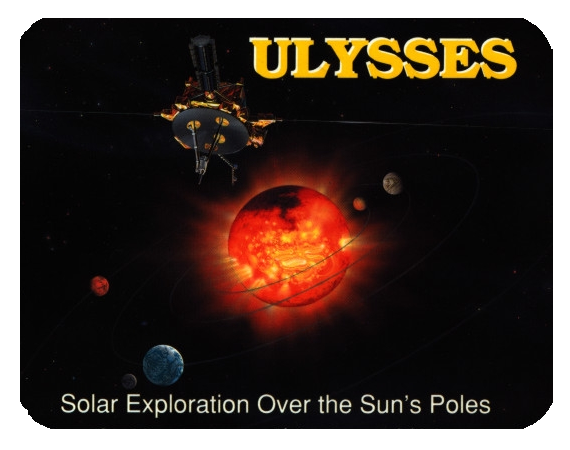ULYSSES
Ulysses HISCALE Data Analysis Handbook
Table 2.9 ISPM SFDU secondary header
| WORD | BITS | DESCRIPTION | ||
| 2 | 16-23 | Originator ID - Identifies which
facility originated the second header. 01000010 = Front End Telemetry Processor (DACS) 01000011 = Data Records System (DRS) |
||
| 2 | 24-31 | Last Modifier ID - Identifies the
system which last modified the record. Same code for "Originator ID". 01000011 = Data Records System (DRS) |
||
| 3 | 0-15 | Major/Minor Data Class - Identifies
the minor data class within each major data class. Each field is 8 bits long and is shown below in hexiddecimal for brevity. |
||
| Major | Minor | Description | ||
| 1 | 0 | Science and Engineering Data | ||
| 5 | - 0 1 2 3 4 5 6 |
Experiment Data Record (EDR) Space Gloeckler-Geiss Experiment Gruen Experiment Hedgecock Experiment Hurley-Sommer Experiment Keppler Experiment Lanzerotti Experiment |
||
| Major | Minor | Description | ||
| 5 | 7 8 9 A B |
Simpson Experiment Stone Experiment Engineering Experiment Bame Ion Experiment Bame Electron Experiment |
||
| 6 | - 0 1 2 |
Supplementary EDR (SEDR) Predict Final Special |
||
| 7 | - | Common Data File | ||
| 9 | - | Catalog/Archive Data - MDR (Minor format same as EDR) |
||
| D | 0 | Ground Monitor Data | ||
| 3 4 |
16-31 0-31 |
Spacecraft Event Time - UTC that
corresponds to the fine minor frame from which this record's prime data was extra. Consists of a 4-byte coarse time (seconds since the beginning of January 1st, 1950. 00:00 a.m.) and a 2-byte fine time |
||
| 5 6 |
0-31 0-15 |
Earth Received Time - UTC of this
record, either as time recieved time generated by DSN or time generated by Originator this record, Consists of a 4-byte coarse time and 2-byte fine time. |
||
| 6 | 16-23 | Sequence Reference ID - Identifies
the data contained in SFDU to a specific segment of
the flight mission sequence. (This field is unused
for ISPM and is set to binary zeros.) Mission Mode Flags - Description of how data was generated for this record. |
||
| 6 | 24 | Spacecraft Real-time/Playback Data
Flag - Indicates whether data was down linked by the
spacecraft in real-time or as a result of a tape
recorder playback 0 = Real-time data or not applicable 1 = Playback data |
||
| 6 | 25 | Real/Simulated Data Flag - Indicates
whether data is real or simulated 0 = Real data 1 = Simulated data |
||
| 6 | 26 | System Test/MOS Flag - Indicates
whether data is test or flight generated 0 = Test complet generated 1 = Flight (MOS) generated |
||
| 6 | 27 | Replay Flag - Indicates if record
contains replay data. 0 = Initial acquisition or not applicable 1 = Replay data |
||
| Message Contents Quality Status - Indicates gross quality of the data in the secondary and tertiary headers. | ||||
| 6 | 28 | Data Quality Flag - Indicates if the
data portion of this record is valid or not. 0 = data valid 1 = data suspect, incomplete, or invalid |
||
| 6 | 29 | Spacecraft Clock Flag - Indicates if
the spacecraft clock is valid or or not. 0 = SCET is valid 1 = SCET is missing, incomplete, or invalid |
||
| 6 | 30 | Spacecraft Event Time Flag -
Indicates if SCET value is valid or not. 0 = ERT is valid 1 - ERT is bad or missing |
||
| 6 | 31 | Earth Recieved Time Flag - Indicates
if ERT value is valid or not. 0 = ERT is valid 1 - ERT is bad or missing |
||
| 7 | 0-7 | Mission ID - Indentifies the
mission. 00000011 = ISPM |
||
| 7 | 8-15 | Spacecraft ID
-Indicates the DSN spacecraft code. (Controlled by document 820-13, OPS-6-6.) 00110110 = ISPM Test MOdel 00110111 = ISPM Spacecraft 01000000 = Simulated ISPM Test Model 01000001 = Simulated ISPM Spacecraft |
||
| 7 | 16-23 | DSN Source
Station - Indicates the DSN source station. (Controlled by document 820-13, OPS-6-6 and OPS-6-8.) [Multi-Mission] Note: ESC is the designated station ID. |
||
| 00000010 = MIL
71 SPC 00000011 - Mil 71 Link 00010011 = Simulation Center 00010100 = Internal MCCC 00100001 = UKOCC, Chilton 00100110 = MIL 71 00100111 = ESOC, Darmstadt, Germany 00101101 = Parks, Australia 01000110 = Cape Building AO 01010111 = SPC 10 01100100 = Internal MCCC 01100111 = Weikheim (15 meters) 01101011 = CTA-21 01110110 = DSS-62 01110111 = Network Operations Control Center 01111111 = DSN GCF Test or Filler 10000001 = DSS-12 (Mark IV A) 10000010 = DSS-14 (Mark IV A) 10000011 = DSS-15 (Mark IV A) |
||||
| 10000100 =
SPC-16 10001001 = DSS-13 10001010 = DSS-17 - no antenna (Mark IV A) 10001011 = DSS-18 - no atenna (Mark IV A) 10001110 = MCCC/GSOC 10010000 = SPC-40 |
||||
| 10010010 =
DSS-42 (Mark IV A) 10010011 = DSS-43 (Mark IV A) 10010100 = DSS-45 (Mark IV A) 10010101 = SPC-46 10010111 = DSS-47 - no antenna (Mark IV A) 10011010 = DSS-48 - no antenna (Mark IV A) 10100111 = GSOC Germany 10110111 - DSS DRG Facility - ATRS use 10111000 = DSSDRG Facility - Direct IDR Prod. 10111100 = Network Data Processing Center 10111111 = GCF Test to GSOC 11000011 = DSS-44 11010111 = SPC-60 11110011 = DSS-61 (Mark IV A) 11110100 = DSS-63 (Mark IV A) 11110101 = DSS-65 - no antenna (Mark IV A) 11110110 = DSS-66 11110111 = DSS-67 - no antenna (Mark IV A) 11111010 = DSS-68 - no antenna (Mark IV A) |
||||
| 7 | 24-31 | Format - Indicates the specific contents of the data identified by Major and Minor Data Types. (This field is not used for ISPM and is set to binary zeroes.) | ||
| 8 | 0-7 | Tertiary Header
Identifier - Indicates the type of tertiary header
that follows the secondary header. 00000000 = no tertiary header 00000011 = data records system header 00000010 = real-time telemetry processor (DACS) |
||
| 8 | 8-15 | Number of Data Groups - Number of contiguous data groups identified by and immediately following the SFDU headers. Constant set to binary "1" for ISPM. | ||
| 8 | 16-31 | Appended Data Pointer - Displacement to first bit in the appended (secondary) text from the first bit of this header in bytes. Constant set to "0" for ISPM. | ||
| 9 10 |
0-31 0-15 |
Spacecraft Clock - Indicates current value of the spacecraft clock. The first 32 bits reflect the actual clock value from spacecraft telemetry, the final 16 bits are the fractional portion expressed as a binary integer. | ||
Return to Chapter 2 Table of Contents
Return to Ulysses HISCALE Data Analysis Handbook Table of Contents
Updated 8/8/19, Cameron Crane
QUICK FACTS
Manufacturer:
ESA provided the Ulysses spacecraft, NASA provided the power
supply, and various others provided its instruments.
Mission End Date: June 30, 2009
Destination: The inner heliosphere of the sun away from the ecliptic plane
Orbit: Elliptical orbit transversing the polar regions of the sun outside of the ecliptic plane
Mission End Date: June 30, 2009
Destination: The inner heliosphere of the sun away from the ecliptic plane
Orbit: Elliptical orbit transversing the polar regions of the sun outside of the ecliptic plane



